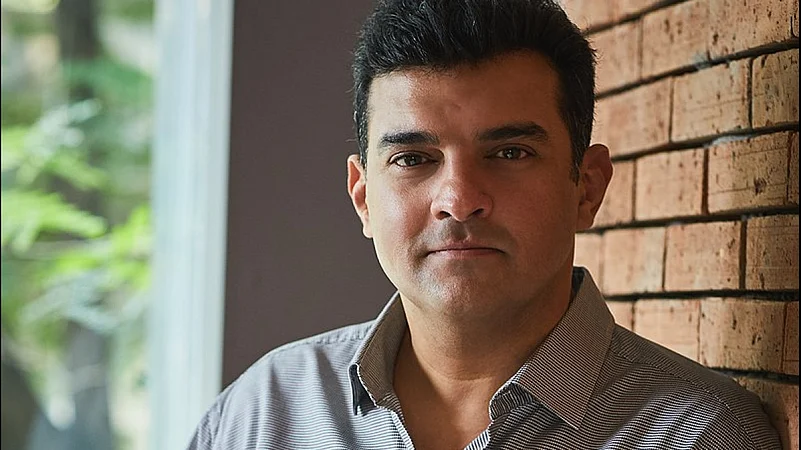Siddharth Roy Kapur is one of the most prolific filmmakers in recent times who has been constantly producing content that has not only won critical appreciation but also earned the big bucks. His recent release, ‘Rocket Boys 2’ on Sony Liv, has been a massive success after the superlative success of the first season.
Talking to Prateek Sur, Siddharth Roy Kapur speaks up about the boom in OTT in the past few years, about Hindi films not doing that well at the ticket windows, the change in cinema that the digital platforms have brought across, and lots more. Excerpts:
In a time when big theatricals are generally not working in Hindi cinema, are producers like you more inclined towards OTT?
I believe it's a phase, the habit of going to the cinema had to take a back seat because of the pandemic. The audiences have taken their time to come back to theatres. 2023 hopefully will see a rise in theatrical releases and cinemas that will be house full again. However, Streaming is a great way for us to be able to tell all kinds of stories. So, I believe that finally, water will find its own level and there will be an audience that enjoys watching some films in cinemas and can also choose to watch some others on OTT platforms. I strongly believe that both mediums can coexist. As for producers like me, I chase a story and I take that story whichever way I want to take it, depending on the format that it's best suited for. So it just feels like a really wonderful time to be able to tell stories across all mediums. What could be better for creators?
With this OTT boom do you think filmmakers, or even actors, who were probably not getting enough recognition in the mainstream movies are finally getting to make their mark?
Absolutely. This has really levelled the playing field. And today it's more about the story, the talent and about a great viewing experience. I think it's a great opportunity for some incredible actors to be able to really shine and come into their own. Not just actors, but even writers, directors and other creative people are being able to do so much more interesting and fulfilling work than they were able to do in the past. So, in many ways, it really is the golden age of content.
What’s the upside to this OTT boom in India?
The upside is that number one, from the financial and the commercial standpoint, content creators have the ability to operate across multiple lines of business, across multiple formats, and create much more content in volume and across genres than they were able to do in the past. And for creators, it's the ability of directors, writers, and actors, to be able to tell stories that they might never have been able to tell in the past. So I think all round it's a wonderful thing.
Are there any downsides to this OTT boom? Probably something which we, from the outside, aren’t able to see, but you being in the midst of it all, can see and predict?
Probably the price value equation in the consumer's mind because there's such a plethora of content available to them for a certain value. Therefore, when they think of the price of the movie ticket in context to their annual subscription plan for a streaming service, it tends not to add up. And therefore, that is a bit of a threat to the theatrical business because then theatrical is no longer the only form of mass entertainment as it used to be in the past, but in fact, now becomes a much pricier affair when a consumer compares it to what they're paying for streaming.
Are digital platforms changing the way cinema is made?
In a way. The genres that I think people are geared towards theatrically now are tending to be much more big-ticket spectacles, thrillers, and action genres that compel you to go to the cinema hall for the experience it provides. And that's probably because streaming has become the place for dramas, light comedies, and the sort of content that you don't necessarily need to watch on a big screen. So, therefore, in a sense, streaming has affected the kind of content being made for theatrical.
OTT platforms have content from all over the globe and numerous languages. Do you think with this, the culture of remaking an already released film in a different language would stop in India? Like would Bollywood filmmakers stop making a remake of a hit Telugu or a Malayalam movie?
I firmly believe that if it's a great film, regardless of whether it's a remake or not, people will enjoy it. We've got so many examples. I mean, a film like Drishyam 2, did so spectacularly well. And of course, the original film was available on streaming platforms dubbed in Hindi. It's a great example of a very well-made film that, regardless of the fact that it was a remake, did so well at the box office. So, I think it all boils down to the quality of the film.
In the last couple of years, with Hindi films not working that well at the box-office, where do you think we are going wrong?
It's hard to come up with a silver bullet for exactly what might have happened over the last few years, but these things do tend to be cyclical. I have a lot of faith in our filmmakers and in our writers that a challenge has been put to us and we will come out of it. We probably have not been showing as much conviction in telling stories that are rooted and authentic and have been perhaps muddled in dabbling across multiple genres, trying to be all things to all people. I think the last few years of Hindi cinema not performing as well as we would have wanted it to, is a wake-up call for us all. And I'm sure we'll do better.
Nowadays films come on OTT after, say 5-6 weeks of their theatrical release. Is that pushing the audiences away from coming to theatres and sitting for a few more weeks to watch the same film in the same HD quality from the comforts of their home?
Well, it's now an eight-week window. So, the eight-week window, I think should be sacrosanct. And I do believe an eight-week window from theatrical to streaming works best for the creators as well as the streaming platforms. If audiences want to come for a film and the cinematic experience theatres provide, they will come. It all boils down to creating an immediacy effect where people feel compelled to go to the cinema on that opening weekend or in the first week because it's a film that they're dying to watch.



























